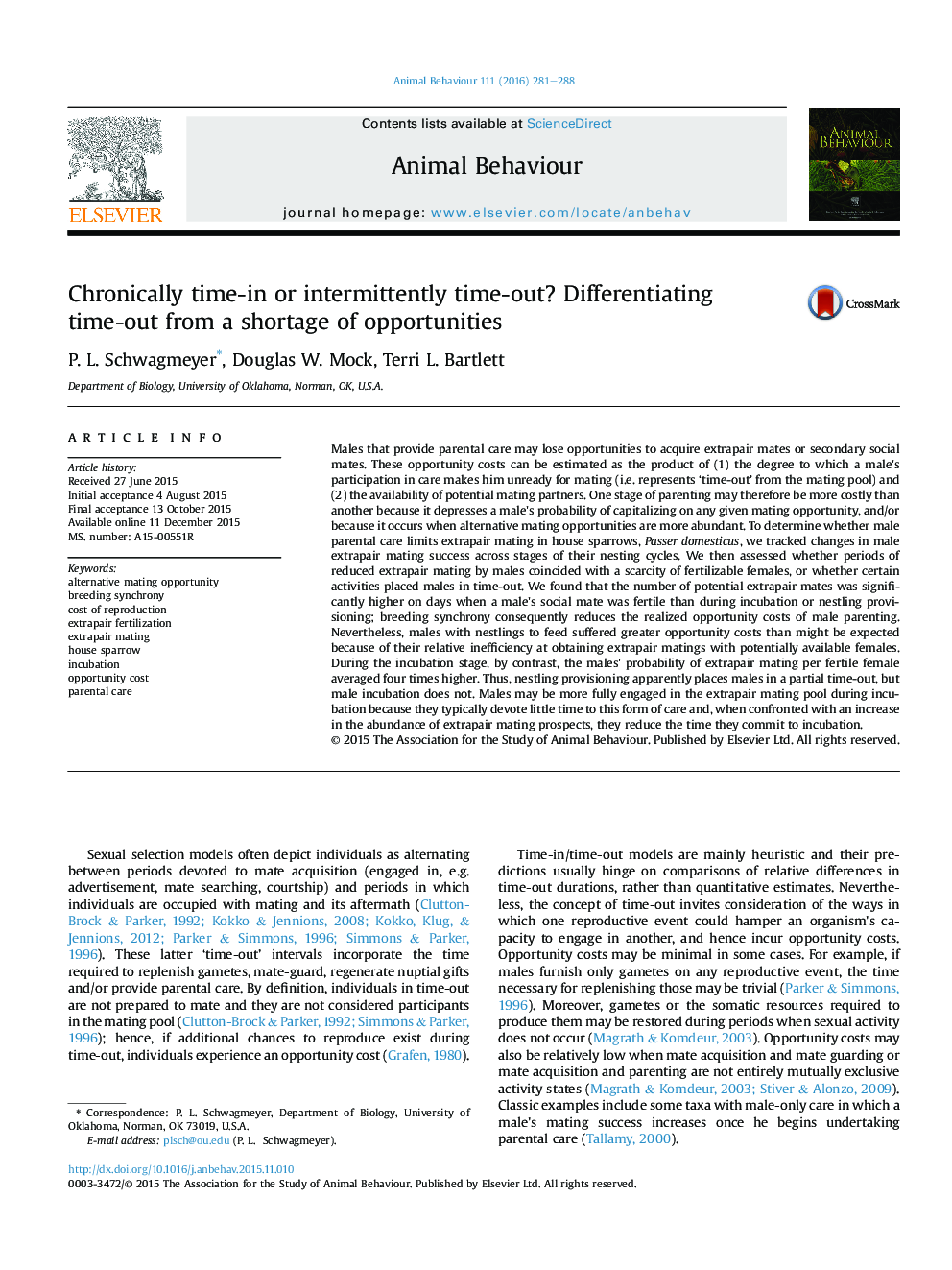| کد مقاله | کد نشریه | سال انتشار | مقاله انگلیسی | نسخه تمام متن |
|---|---|---|---|---|
| 8489438 | 1552217 | 2016 | 8 صفحه PDF | دانلود رایگان |
عنوان انگلیسی مقاله ISI
Chronically time-in or intermittently time-out? Differentiating time-out from a shortage of opportunities
ترجمه فارسی عنوان
در زمان و یا در زمان وقوع زمان؟ تنزل زمان از کمبود فرصت ها
دانلود مقاله + سفارش ترجمه
دانلود مقاله ISI انگلیسی
رایگان برای ایرانیان
کلمات کلیدی
جایگزین زوج فرصت پرورش همزمان هزینه تولید مثل، باروری اضافی جفتگیری اضافی جلبک خانه، انکوباسیون، هزینه فرصت، مراقبت از پدر و مادر،
موضوعات مرتبط
علوم زیستی و بیوفناوری
علوم کشاورزی و بیولوژیک
علوم دامی و جانورشناسی
چکیده انگلیسی
Males that provide parental care may lose opportunities to acquire extrapair mates or secondary social mates. These opportunity costs can be estimated as the product of (1) the degree to which a male's participation in care makes him unready for mating (i.e. represents 'time-out' from the mating pool) and (2) the availability of potential mating partners. One stage of parenting may therefore be more costly than another because it depresses a male's probability of capitalizing on any given mating opportunity, and/or because it occurs when alternative mating opportunities are more abundant. To determine whether male parental care limits extrapair mating in house sparrows, Passer domesticus, we tracked changes in male extrapair mating success across stages of their nesting cycles. We then assessed whether periods of reduced extrapair mating by males coincided with a scarcity of fertilizable females, or whether certain activities placed males in time-out. We found that the number of potential extrapair mates was significantly higher on days when a male's social mate was fertile than during incubation or nestling provisioning; breeding synchrony consequently reduces the realized opportunity costs of male parenting. Nevertheless, males with nestlings to feed suffered greater opportunity costs than might be expected because of their relative inefficiency at obtaining extrapair matings with potentially available females. During the incubation stage, by contrast, the males' probability of extrapair mating per fertile female averaged four times higher. Thus, nestling provisioning apparently places males in a partial time-out, but male incubation does not. Males may be more fully engaged in the extrapair mating pool during incubation because they typically devote little time to this form of care and, when confronted with an increase in the abundance of extrapair mating prospects, they reduce the time they commit to incubation.
ناشر
Database: Elsevier - ScienceDirect (ساینس دایرکت)
Journal: Animal Behaviour - Volume 111, January 2016, Pages 281-288
Journal: Animal Behaviour - Volume 111, January 2016, Pages 281-288
نویسندگان
P.L. Schwagmeyer, Douglas W. Mock, Terri L. Bartlett,
